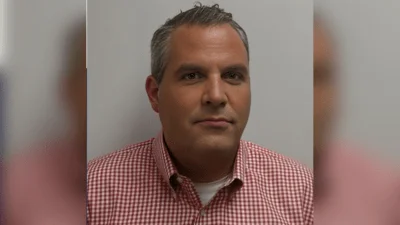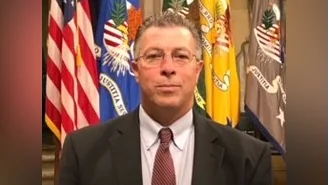The publication is reproduced in full below:
Cyber Security
Mr. GRASSLEY. Madam President, earlier this month, Senator Ernst and I sent a letter to Secretary Mayorkas asking the Secretary to address the devastating cyber attacks conducted on our national agricultural sector.
Agriculture is designated as one of the country's 16 critical infrastructure industries but historically has not received robust cyber security support from our government. Attacks from foreign cyber criminals are threatening both the livelihood of our farmers and the security of the food that we eat.
Last month, NEW Cooperative, an Iowa grain co-op, was the target of BlackMatter, a Russian cyber criminal cell. The cyber attack shut down systems that control crop irrigation, livestock feed schedules, and inventory distribution. NEW Cooperative comprises about 40 percent of the grain distribution in our country. The co-op narrowly managed to avert a crash in grain prices without paying a $5.9 million ransom.
These attacks are not limited to just large distributors. The Russian group BlackByte claimed it attacked Farmers Cooperative Elevator Company, an Iowa grain co-op with just four locations. BlackByte is threatening to release 100 gigabytes of sensitive data, including financial, sales, and accounting information, if a ransom is not paid.
The extent of the damage from the NEW Cooperative and the Farmers Cooperative Elevator Company attacks is not isolated to the grain market. Feed from these co-ops sustain more than 11 million head of livestock.
These attacks affect the supply chain that puts food on the shelves of grocery stores all across our country. As Iowa farmers adopt new technologies to get their crops to market, their exposure grows to similar attacks.
These two ransomware attacks are only the latest in a very long line of cyber attacks on our critical infrastructure this year. In July, a Miami-based software provider was attacked, which resulted in trickle-
down effects to thousands of organizations. In June, JBS Foods--that happens to be the world's largest meat processing company--that company was attacked, shutting down nine meat packing plants in the United States. In May, Colonial Pipeline was shut down for 11 days, resulting in buying panics and shortages.
While many cyber attacks originate from Russia, attacks have also come from other countries. Earlier this year, the Biden administration formally blamed China for a massive hack of the Microsoft Exchange email server. The hackers responsible appeared to work directly for China's Ministry of State Security. Estimates range as high as 250,000 victims in that attack.
In July, the Senate Judiciary Committee, where I serve as ranking member, held a hearing at my request looking at how to prevent and respond to ransomware attacks. During this hearing, witnesses testified that the Department of Homeland Security would be identifying and hardening critical points of failure. However, it is clear that their actions up to now have not deterred criminals from targeting the U.S. agricultural industry.
Now, farmers might be only 2 percent of the U.S. population, but they provide food for the other 98 percent. Their job--the 2 percent of the people in this country--is no small task. Keeping Americans fed is very important.
There is an old quote that goes something like this: ``There are only nine meals between mankind and anarchy.'' The quote is key to understanding the importance of keeping our agricultural supply chain safe and secure.
I want to thank my colleague Senator Ernst for joining me today in calling attention to this ongoing national security concern because agricultural security is national security. It is time that we do more to protect this critical sector of agriculture.
I yield the floor.
The PRESIDING OFFICER (Mr. Hickenlooper). The Senator from Iowa.
Ms. ERNST. Thank you, Mr. President. I also want to thank my senior Senator from our great State of Iowa for his wonderful contributions to our agriculture sector. This is an extremely important topic that we are bringing to the floor today, the threat of agriculture ransomware.
From grocery stores in Iowa to New York and every State in between, it is no secret that the price of groceries has drastically increased over the course of the past year. Combining that with the ongoing supply chain disaster, it is even more apparent that the last thing we need is a cyber security attack that would shut down any of our agriculture production.
Like many Iowans, I am increasingly concerned about the growing ransomware attacks on our Nation's ag economy. In a 2019 report, researchers from the University of Minnesota outlined the seriousness of the risk of cyber attacks to the American food and agriculture system. The report indicated that American agriculture is extremely vulnerable due to outdated security, poor coordination among businesses, and lack of emphasis on cyber security within the industry.
In June, the world's largest meat processing company, JBS, was attacked by a Russian-based operation. Nine U.S.-based meat packing plants temporarily shut down as a result of that attack, including the JBS pork processing plants in Marshalltown and Ottumwa, IA.
Similarly, NEW Cooperative, an Iowa grain cooperative that controls 40 percent of the grain distribution in our country, was recently targeted with a cyber attack by another Russian cyber crime. They attacked controlled crop irrigation, livestock feed schedules, and inventory distribution, and then they demanded $5.9 million in ransom.
Another attack hit Farmers Cooperative Elevator Company, based in Arcadia, IA. This was coordinated by another Russian attacker, who threatened to release sensitive data, including financial, sales, and accounting information.
This is a very serious warning sign for our ag industry. It is a problem primed to increase as farmers incorporate more technology into their daily lives. Precision agriculture, for example, has promising potential to fulfill increasing global food supply and demand while also improving our soil and water quality, but it demands heavy reliance on interconnected devices and the internet, creating vulnerability. Attackers can exploit these vulnerabilities to remotely control and disrupt data flow, potentially causing devastating consequences, especially as farmers move their crops and their livestock to market.
These attacks risk the livelihood of farmers and affect the supply chain that puts food on the shelves and on our families' tables all across our country. That is why I believe 21st-century farming needs 21st-century solutions. The security, safety, and resiliency of our food supply chain is integral to the overall security of our Nation.
The ag sector is designated as critical infrastructure, but historically, it has not received robust cyber security support from the government.
Just recently, I joined Senator Grassley in urging Secretary Mayorkas to address these ransomware attacks on agriculture and to leverage the Department's resources to prepare for any future attacks. The Biden administration outlined a new national security memorandum that would include cyber security as it relates to agriculture, but the plan is voluntary and would severely limit its effectiveness. It is why I joined Senators Grassley, Stabenow, and Tester in an effort to get both the Secretary of Agriculture and the Secretary of Health and Human Services, who oversees the Food and Drug Administration, permanent representation on the Committee on Foreign Investment in the United States.
The legislation also adds new criteria to ensure that proposed transactions are reviewed specifically for their potential impact on American food and agricultural systems. The increasing trend of foreign investment in our food and ag system should be met with careful scrutiny in order to safeguard the security and safety of our food supply and, by extension, our Nation because, after all, food security is national security.
Again, I thank my senior Senator Chuck Grassley for leading these efforts to protect our agriculture industry, the livelihoods of Iowans, and everyone else who puts food on their table.
I yield the floor.
The PRESIDING OFFICER. The Senator from Iowa.
SOURCE: Congressional Record Vol. 167, No. 191
The Congressional Record is a unique source of public documentation. It started in 1873, documenting nearly all the major and minor policies being discussed and debated.
Senators' salaries are historically higher than the median US income.





 Alerts Sign-up
Alerts Sign-up